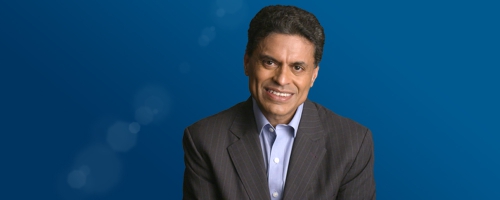
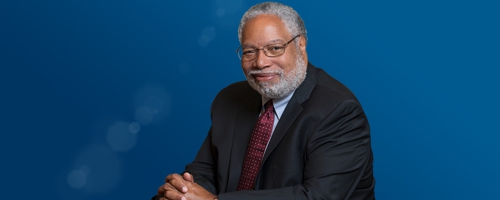
2024 KEYNOTE ADDRESS GIVEN BY THE SECRETARY OF THE SMITHSONIAN INSTITUTION
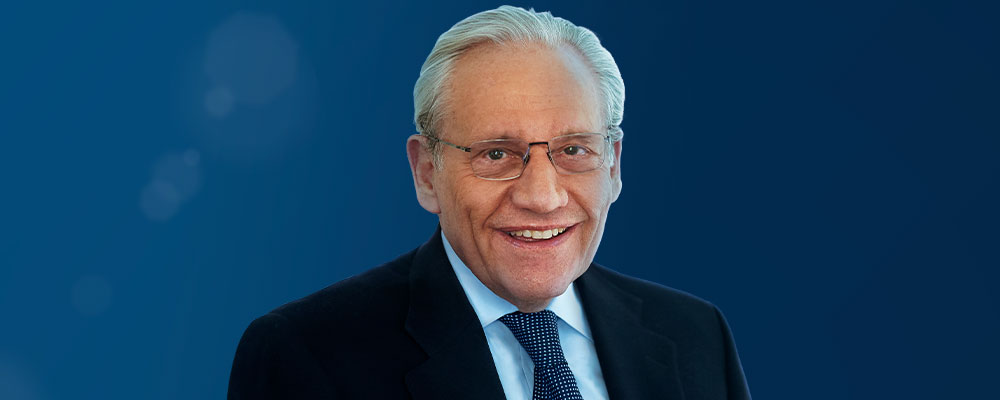
Living journalistic legend Bob Woodward is associate editor for The Washington Post, where he’s worked since 1971. He has won nearly every American journalism award, including two Pulitzers: in 1973 for coverage of the Watergate scandal with Carl Bernstein, and in 2003 as the lead reporter for coverage of the 9/11 terrorist attacks. For more on his lecture, click here.
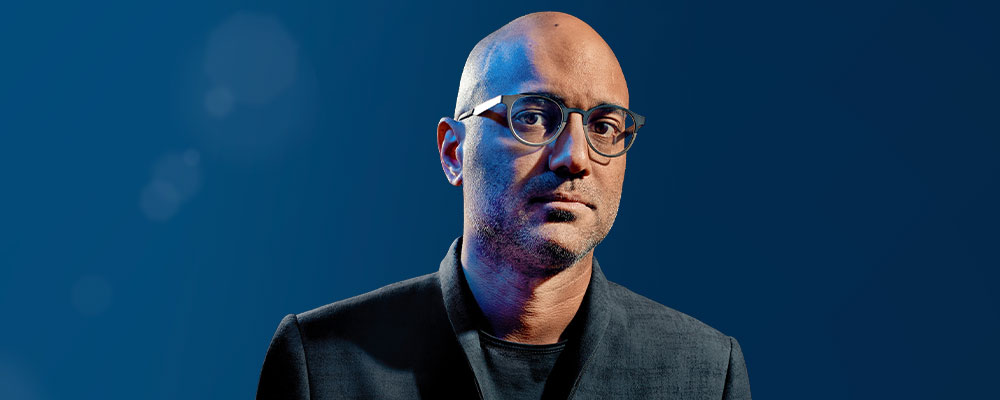
Pulitzer Prize-winning playwright and award-winning novelist Ayad Akhtar, whose writing covers themes including the American-Muslim experience, family and friendship, religion and economics, immigration, and identity. Following his remarks, Akhtar took part in a conversation and Q&A with Ali Behdad, John Charles Hillis Professor of Literature in the UCLA Department of English.
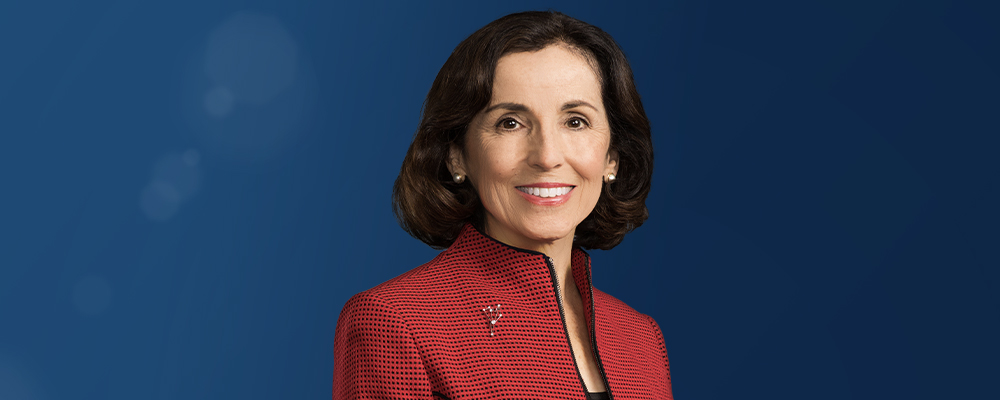
“No matter who you are, what background you bring to something, you will be faced with challenges. The important thing to do is to get beyond them…be resilient and have a great team to help you get past difficult times.”
Former director of the National Science Foundation and renowned astrophysicist France A. Córdova delivered fifth Luskin Lecture for Thought Leadership at UCLA. Her presentation, “The Learn’d Astronomer Discovers the Policy World,” describes how shaping science policy can make science and technology more inclusive, more accessible and richer in scientific discovery. She drew on her leadership experience in higher education and in the government. Following her talk, Córdova took part in a moderated discussion with UCLA Dean of Physical Sciences Miguel García-Garibay.
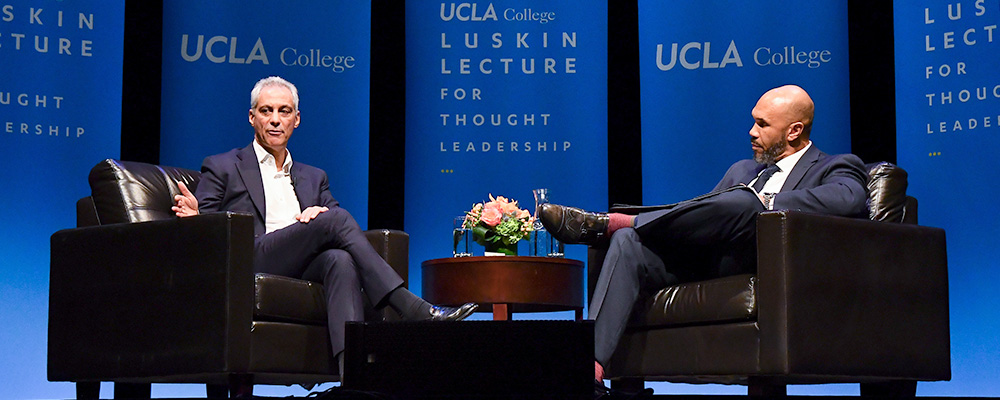
“Don’t ever look back and say ‘shoulda,woulda, coulda,” Emanuel said. “It is better to try and fail than to resent what you never tried to do … Don’t manage risk to the point that you don’t experience life.”
Chicago Mayor Rahm Emanuel delivered fourth Luskin Lecture for Thought Leadership at UCLA. His visit included touring UCLA’s student entrepreneur spaces, talking with students and Chicago business leaders at a roundtable about careers, and delivering the 2018 Luskin Lecture for Thought Leadership at Royce Hall. In his speech at Royce Hall, Rahm Emanuel focused on education, criminal justice and business.
For more on the 2018 UCLA College Luskin Lecture Lecture for Thought Leadership click here.
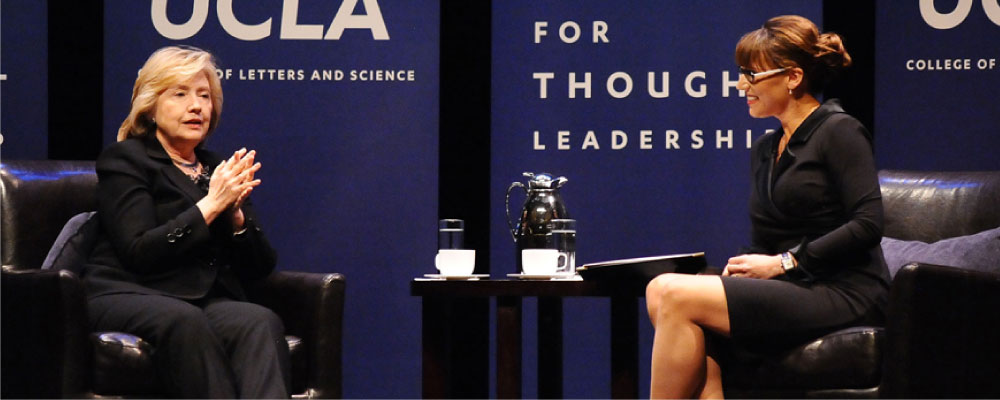
“I really want you to believe that you can change the world, and be confident that you have a role to play and a contribution to make,”
Hillary Rodham Clinton delivered the third UCLA College Luskin Lecture for Thought Leadership and also accepted the university’s highest honor, the UCLA Medal, presented by UCLA Chancellor Gene Block. The former secretary of state and senator spoke about the importance of UCLA and other universities in preparing students for the job market and inspiring creative solutions to society’s biggest problems.
For more on the 2014 UCLA College Luskin Lecture Lecture for Thought Leadership click here.
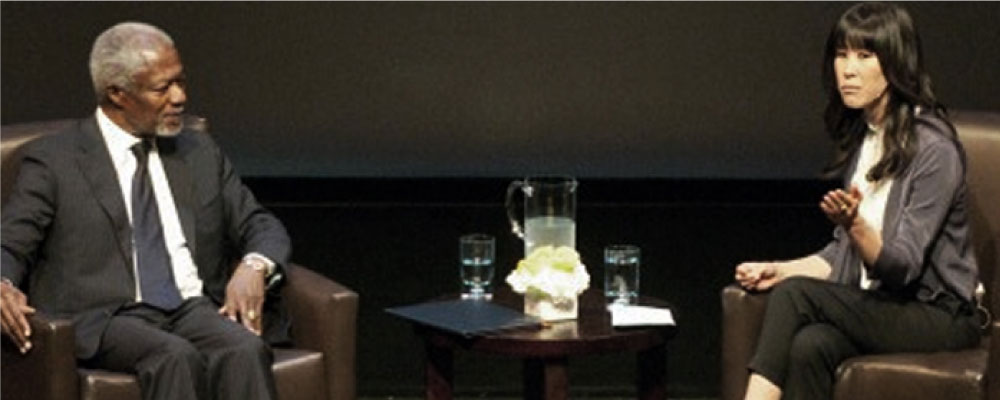
“Reach out to people from different cultures, different religions, and share. That, in a way, prepares you for the world you are going to see and to live in.”
Kofi Annan, former secretary-general of the United Nations, delivered the keynote speech for the second UCLA College Luskin Lecture for Thought Leadership. Annan’s talk touched on his formative years in Ghana and detailed some of the lessons he learned during his tenure as the U.N.’s leader from 1997 to 2006. Annan encouraged students to take full advantage of UCLA’s multicultural campus environment and international study opportunities as a way to prepare for life after college.
For more on the 2013 UCLA College Luskin Lecture Lecture for Thought Leadership click here.
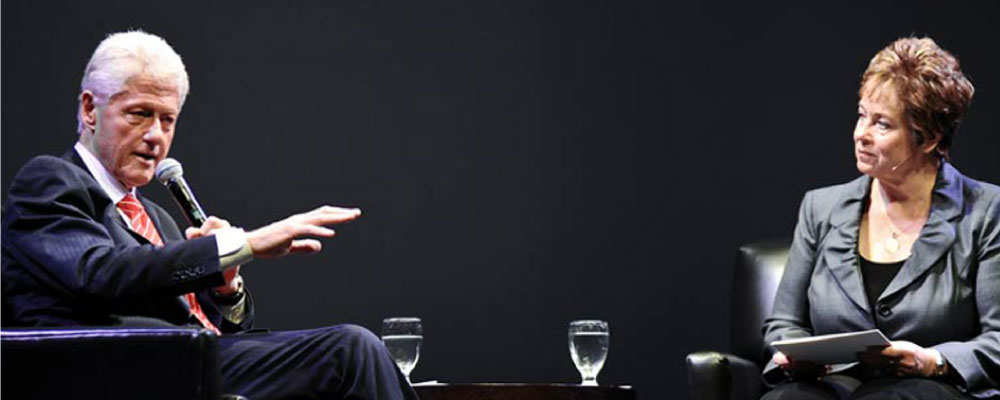
“Our futures are bound together … You’ve got to build a world of positive interdependence. And you can do it.”
President Bill Clinton delivered the keynote speech for the UCLA College inaugural Luskin Lecture for Thought Leadership. President Clinton’s speech touched on the link between solving the country’s economic crisis and solving entrenched problems in developing countries around the globe. Both, he said, depend on turning our growing interconnectedness to our advantage. Between technology, trade, the global economy and other factors, globalization means we all affect each other more than ever, for good or ill, he explained.
For more on the 2012 UCLA College Luskin Lecture Lecture for Thought Leadership click here.

